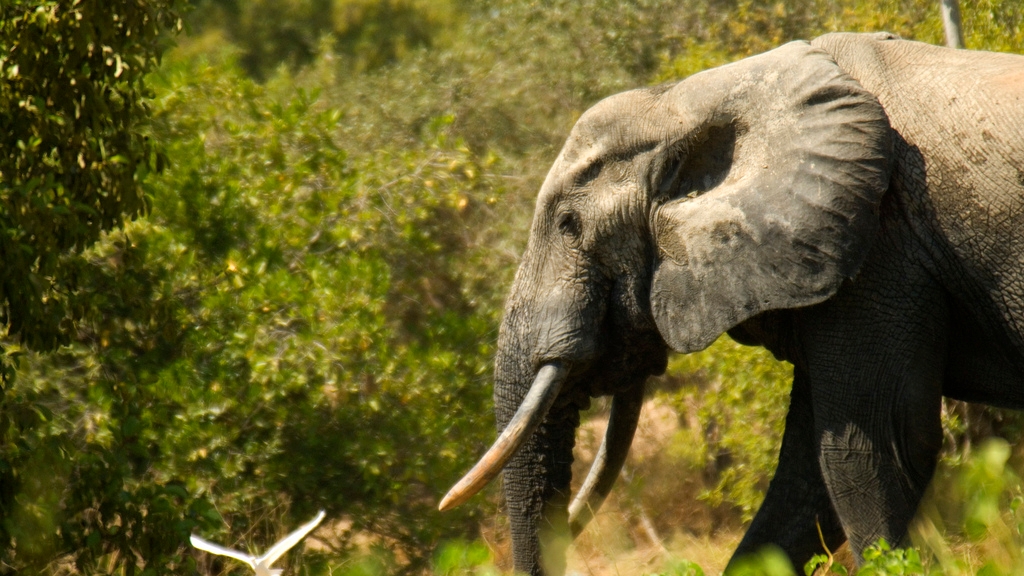Ghana, known for its rich culture and historical landmarks, is also home to a diverse range of ecosystems that make it a gem for environmental and wildlife enthusiasts. From its lush rainforests to its sprawling savannahs, the country boasts a variety of landscapes that provide habitats for unique species. However, like many other nations, Ghana faces significant challenges in preserving its natural heritage. This article delves into the state of environmental and wildlife conservation in Ghana, highlighting ongoing efforts and the importance of sustainable practices.
Ghana’s Biodiversity at a Glance
Ghana’s biodiversity is as vibrant as its culture. The country is home to several national parks and wildlife reserves, such as Mole National Park, Kakum National Park, and the Shai Hills Reserve. These areas serve as sanctuaries for species like elephants, antelopes, and various bird species. The rainforests of Kakum, for instance, are renowned for their canopy walkway, which offers visitors a rare glimpse into the treetop ecosystem.
Despite these treasures, many of Ghana’s species are endangered. The pangolin, African grey parrot, and marine turtles are just a few examples of species facing threats due to habitat destruction, poaching, and climate change.
Threats to Ghana’s Environment
- Deforestation: Ghana has one of the highest deforestation rates in Africa. Rapid urbanization, illegal logging, and agricultural expansion have significantly reduced forest cover. According to Global Forest Watch, Ghana lost a considerable portion of its primary rainforest in recent decades.
- Climate Change: Rising temperatures and erratic rainfall patterns are impacting agricultural productivity and water resources, affecting both humans and wildlife.
- Pollution: Plastic waste, illegal mining activities (commonly referred to as “galamsey”), and oil exploration contribute to land and water pollution, endangering aquatic life and ecosystems.
- Poaching: Illegal hunting and trade in wildlife parts pose a significant threat to many species. Strict enforcement of anti-poaching laws is essential to curb this menace.
Conservation Efforts in Ghana
The Ghanaian government and various organizations have implemented measures to tackle these environmental challenges:
- Protected Areas: National parks like Mole and Kakum are actively managed to protect biodiversity and provide eco-tourism opportunities. Hospitality businesses in these regions, such as Hospitality GH, play a vital role in promoting sustainable tourism practices.
- Afforestation Initiatives: Projects like the Green Ghana initiative aim to restore lost forest cover. In 2023, the government planted millions of trees nationwide as part of this campaign.
- Community Involvement: Local communities are increasingly involved in conservation efforts. Programs that educate residents about sustainable farming practices and the benefits of eco-tourism help foster a sense of ownership.
- Legislation: Laws like the Wildlife Conservation Regulations Act are enforced to protect endangered species and regulate hunting activities.
How Can Individuals Contribute?
Everyone has a role to play in conserving Ghana’s environment:
- Eco-friendly Travel: When visiting Ghana’s national parks and reserves, choose accommodations and tour operators that prioritize sustainability, such as those listed on Hospitality GH.
- Reduce Waste: Avoid single-use plastics and participate in clean-up drives. Small actions can collectively make a big difference.
- Support Conservation Groups: Organizations like the Wildlife Society of Ghana and international groups like the World Wildlife Fund work tirelessly to protect Ghana’s ecosystems.
- Spread Awareness: Educate others about the importance of conservation. Social media can be a powerful tool to amplify these messages.
The Future of Conservation in Ghana
While challenges remain, there is hope for Ghana’s environment. The combined efforts of the government, NGOs, local communities, and individuals can help turn the tide. By adopting sustainable practices and supporting conservation initiatives, we can ensure that Ghana’s natural beauty and biodiversity are preserved for generations to come.
In conclusion, environmental and wildlife conservation in Ghana is not just a local issue but a global concern. Whether you are a traveler exploring the country or a resident passionate about preserving its beauty, there are numerous ways to contribute. Let us all take a step toward a greener, more sustainable Ghana.
